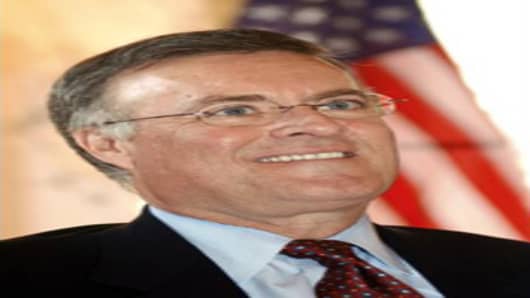Lewis said borrowers will remain cautious, pinched by $4 a gallon gasoline, soaring food costs, and plunging housing prices, including declines of nearly 30 percent in California.
In the first quarter, the economy grew at a 1 percent annual rate. Lewis expects similarly weak second-quarter growth.
Billionaire Warren Buffett has said several times this year that the economy is in recession, which he defined as when people and businesses do less well than several months earlier.
Lewis said Bank of America expects to work out at least $40 billion in home loans in the next two years to help some 265,000 borrowers avoid foreclosure.
Analysts expect Bank of America to post a fourth straight decline in quarterly earnings on July 21 as credit losses climb.
Analysts look for Bank of America to report second-quarter profit, excluding items, of about $2.9 billion, or 64 cents per share, Reuters Estimates said. Profit was $1.30 per share a year earlier.
Greed and Fear
Lewis is now focused on integrating Countrywide.
The Calabasas, California-based lender last year made one in six U.S. home loans, but has been widely faulted for feeding the nation's housing bubble and crash by foisting risky home loans on borrowers in the pursuit of profit.
IndyMac Bancorp , a big independent mortgage lender created by Countrywide, said this week it would quit its main lending business, pinning its survival on offering "reverse" mortgages and running a retail savings and loan.
Lewis blamed the bubble on lenders' willingness to offer cheap loans with little documentation, and Wall Street's desire to bundle risky loans for yield-starved investors as the Federal Reserve drove its benchmark loan rate down.
"We created a housing boom that was not based on economic fundamentals," Lewis said.
"Greed and fear got out of balance, to put it mildly." Bank of America has not offered subprime home loans since 2001, and said it has stopped offering most nontraditional mortgage products.
It nevertheless remains exposed to potential problems as the nation's largest consumer and construction lender, and by some measures the largest credit card issuer.
Some analysts expect it to face $10 billion or more of credit and litigation losses tied to Countrywide.
Yet, referring to Countrywide, Lewis also said that "after considerable analysis and due diligence, we also believe that the business we've acquired is a very good one."



